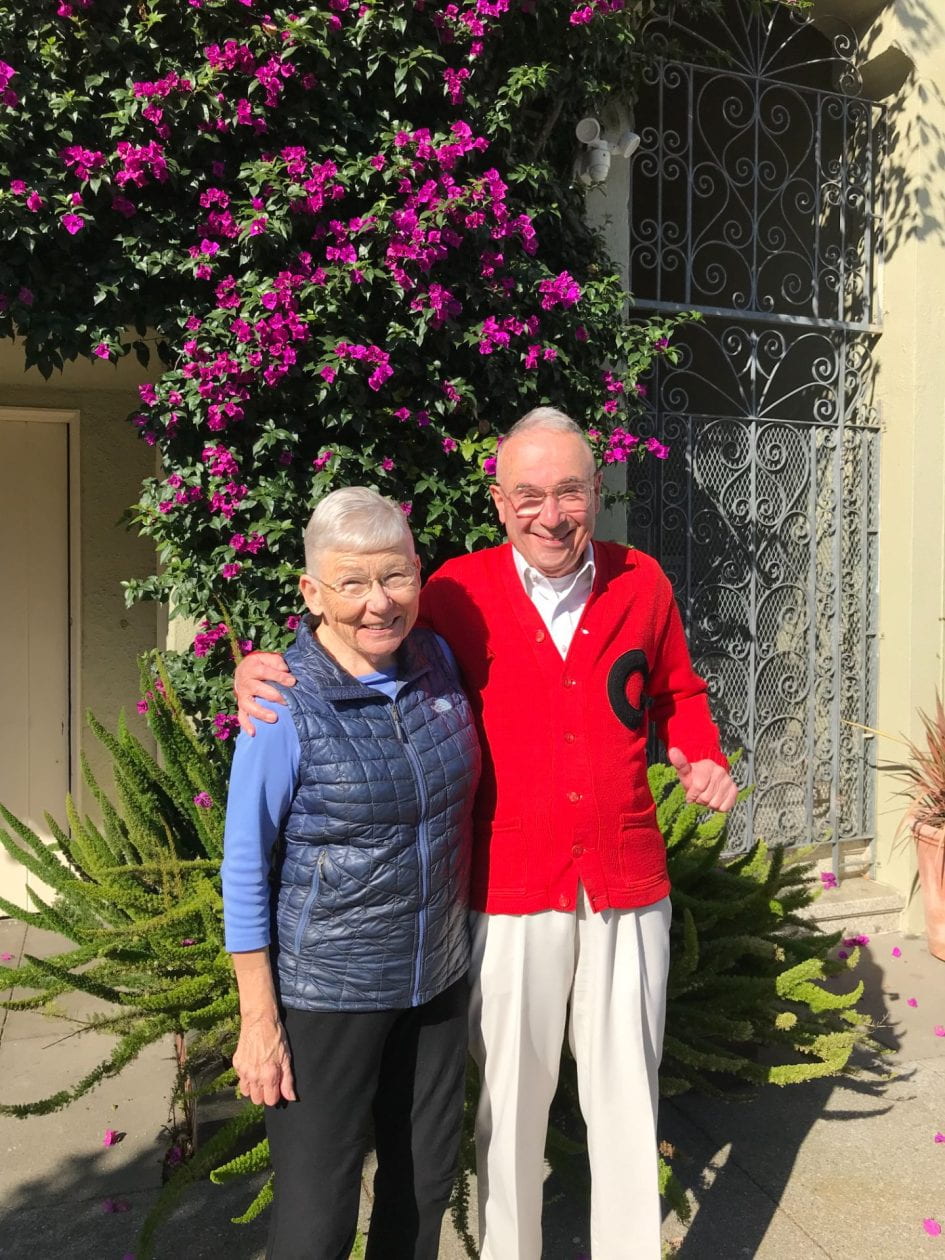In our 2022 issue, we lifted up the writing of Lane Center Board member Carol Miller, S.N.D. In this issue, we are featuring reflections from founding board member Mike Lehmann, shared during a recent conversation.
An economist by training, Lehmann joined the USF faculty in 1966. He occupies a unique place in the university’s history as a collaborative founder of both the Lane Center and the USSFA, the full-time faculty collective bargaining union. When Lehmann joined the faculty, he found a like-minded colleague in sociologist Ralph Lane, a World War II veteran who was already on the faculty and a strong advocate for peace and justice issues.
Like Lane, Lehmann was impressed by USF’s “tremendous feeling of community” and its open embrace of its Catholic traditions. Among their shared beliefs was the conviction that the social teachings of the Catholic Church were “the world’s best kept secret.” As set forth by the U.S Conference of Bishops’ report of 1998(1) Lehmann describes the
tradition of Catholic Social Thought (CST) as “very powerful” because it is aimed at “helping those who are the least of these—it’s standard teaching of the Church.”
Although trained as an economist, Lehmann insists that CST “isn’t about economics but doing something because Jesus said so.” Both men wanted to lift up this mission-oriented dimension of the university’s Catholic identity. Over many gatherings and with other inspired colleagues across several academic disciplines, and with the support of the leadership in the Provost’s office and President Steve Privett, S.J., they imagined what would become the Joan and Ralph Lane Center for Catholic Social Thought and the Ignatian Tradition, founded in 2005 and supported by a generous endowment from the Lane and Lo Schiavo families.
Lehmann describes the founding of the Lane Center as a gradual unfolding of conversations that began in 2000 and were held over several years, exchanges he prizes so dearly that he has maintained an extensive email file of all their correspondence. Among their original ideas was to “spread the word” of CST—to the USF community but also to the parishes. The founders saw a great opportunity to promote a “town and gown” alliance, to take the best of Catholic scholarship to the “people in the pews” so that it could be embodied in concrete acts of social justice.
Their vision was not limited to Catholic parishes because they also believed CST presented a chance for a broader interreligious outreach and collaboration to advance peace and justice and to dispel myths about the Catholic Church. Both Lehmann and Lane held dearly to the principle that the Lane Center should not simply “preach to the choir” but should also reach out beyond the people in the pews in order to “show what CST can accomplish.”
Lehmann envisioned this movement as “like a prairie fire that would start to spread,” to inspire acts of justice but also reflect back on USF and its mission, illustrating the character of the university and its intellectual and religious commitments. As Lehmann observed, CST is “not a cliche theology; this is social theology.” Still thinking like an economist in retirement, Lehmann returns again and again to the 1986 “Economic Justice for All: Pastoral Letter on Catholic Social Teaching and the U.S. Economy”2 as the touchstone for his vision for the Lane Center.
To him, the bishop’s letter demonstrates that CST “can’t be esoteric and convoluted and just describe how many angels dance on the head of a pin and all that. When you look at what the bishops did, it’s in your face. It’s what Jesus did.”
KIMBERLY RAE CONNOR, PHD, is a professor in the School of Management at the University of San Francisco. She teaches ethics and created and directs the Management Exercises, a co-curricular formation program for graduate
students based on the Spiritual Exercises of St. Ignatius. She is also a trained spiritual director for the Exercises.
1. USCCB, Sharing Catholic Social Teaching (1998) https://www.usccb.org/resources
sharing-catholic-social-teaching-challenges-and-directions
2. USCCB, Economic Justice for All (1986), www.usccb.org/upload/economic_justice_for_all.pdf


Leave a Reply